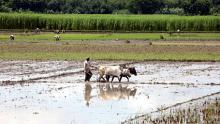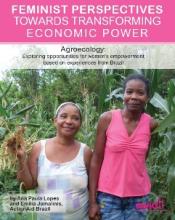/ library resources
Showing items 28 through 36 of 73429.Judy Adoko, Executive Director at the Land and Equity Movement (LEMU, Uganda) sent us a set of documents as a contribution for the on-line discussion "
On 23rd of January the German Federal Ministry for Economic Cooperation and Development has launched a new position paper on large scale investment in land and its implication on development policies. Objective of the position paper is to reflect the recent dynamics.
Initiative conjointe d'Inter-réseaux et SOS Faim, les Bulletins de synthèse Souveraineté alimentaire visent à produire une synthèse sur un thème lié à la souveraineté alimentaire, à partir d’une sélection de quelques références jugées particulièrement intéressantes.
This paper on agroecology and women's empowerment in Brazil includes a long section on "The Right to Land and Natural Resources in Brazil" from a feminist perspective.
The document provides a comprehensive study on past and current land management, including an overview of legislation on pasture access and management, and pratical examples of pasture management in practice.
Paginación
Land Library Search
Through our robust search engine, you can search for any item of the over 64,800 highly curated resources in the Land Library.
If you would like to find an overview of what is possible, feel free to peruse the Search Guide.



